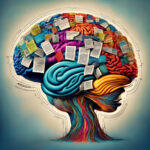It was just after midnight when some of us found ourselves hunched over our phones, the kitchen clock ticking louder than usual. TikTok’s endless scroll can pull us in so easily. For those in the neurodivergent community, there is a certain comfort in seeing others talk about autism, ADHD, or anxiety. Still, as we watch one video after another, something starts to bother us.
Recently, The Guardian published a piece that confirmed what many in our circles have suspected: a huge chunk of the most popular TikTok mental health videos are misleading. Out of the top 100 videos tagged #mentalhealthtips, experts flagged more than half for spreading bad information or advice that could even be harmful. Some tips are just silly. One video swore that eating oranges in the shower would banish anxiety. That idea might make us laugh at first, but then we think about someone who might be desperate enough to try it, hoping for a miracle.
How It Feels When Misinformation Spreads
For people who are autistic or otherwise neurodivergent, watching this kind of confusion spread online stings a bit more. We already deal with people misunderstanding us every single day. When social media adds to the pile, it gets exhausting. Drexel University’s Autism Institute found that only about one in four of the most-viewed autism TikToks actually gives good, reliable information. The rest either miss the mark or are so vague that they’re basically useless.
Dr. Selina Warlow, who runs The Nook Clinic in the UK, put it this way: “We’re seeing more and more young people come in with ideas about autism and ADHD that they picked up online. Some of these ideas are flat-out wrong.” She also pointed out that while social media can help people find community, it can leave them confused or disappointed if they use it to self-diagnose.
A friend of ours, Jamie from Ohio, is autistic and told us about a trend where TikTokers claim all autistic people hate making eye contact. Jamie just shook their head and said, “I don’t care about eye contact at all, but now people think I must be faking.” Broad statements like that make it even harder for us to be seen for who we really are.
Why Does This Keep Happening?
It is not just bad advice floating around. The way TikTok works, the platform is designed to push videos that rack up lots of likes, comments, or shares to the very top of people’s feeds. The algorithm does not check whether the content is accurate or helpful; it simply rewards whatever gets the most engagement. This means that flashy clips, dramatic stories, or videos that promise a quick and easy fix are much more likely to go viral, even if they are misleading or downright false.
For someone who is genuinely struggling and looking for answers, this can be incredibly discouraging. Instead of finding thoughtful guidance or nuanced explanations, people are hit with over-the-top claims or “hacks” that might not work at all. If you have ever felt misunderstood or dismissed in your day-to-day life, seeing the same thing happen online can make you feel even more isolated. It is tough to separate what is real from what is just popular, especially when the loudest voices drown out those with real expertise.
Dr. Dan Poulter, a psychiatrist and former health minister, summed it up perfectly: “These videos risk trivializing real mental health struggles.” We know that feeling all too well. Every time we see a serious diagnosis turned into a meme or a punchline, it chips away at the real challenges people face. It can make it harder for us to be taken seriously and for others to understand the depth and complexity of neurodivergent experiences.
What Can We Do?
So, what are we supposed to do about all this? Here are a few things we have heard people suggest, and some that we have tried ourselves:
- It would be great if more doctors, therapists, and psychologists started posting on TikTok. Right now, so much of what we see comes from people without any formal training, and that can be risky. If qualified professionals were more active on these platforms, they could help set the record straight and offer advice that is grounded in research and real clinical experience. Imagine if, instead of just hearing random tips, we could scroll through videos where a licensed psychologist breaks down what anxiety really feels like, or a therapist explains how to handle sensory overload. Having real experts in the mix could make a big difference for people who might not have access to good information elsewhere. It could also help counteract the spread of myths and give viewers a better sense of what support and treatment actually look like.
- We can help each other spot advice that does not sound right. Sometimes, a tip pops up that seems a little too easy or just doesn’t match what we know from our own lives. When that happens, it helps to talk it over with someone you trust, like a friend, a family member, or even a support group. Double-checking information can mean searching for articles from reputable organizations, asking a professional, or comparing what you see on TikTok to what you’ve learned from trusted sources. We do not have to be experts ourselves, but by looking out for one another and sharing what we know, we can help keep each other safe from bad advice.
- Always ask yourself who is sharing information, what their qualifications are, and whether they cite trustworthy sources. If something sounds too good to be true or wildly different from what you have heard from trusted experts, it is worth looking deeper. You should not take anyone’s word for it, including ours. We encourage you to verify what you read, compare multiple sources, and seek out evidence-based information whenever possible.
- Telling our own stories is important, but it is also good to remind people that what works for one person might not work for everyone. Sharing personal experiences helps us feel less alone and can give others hope or new ideas, but it is important to be clear that every person’s journey is different. For example, one person might find that listening to music helps them calm down, while someone else might need a quiet space instead. Experience matters, and it is powerful to hear real voices, but it is not the same as medical advice. If we can be honest about what has helped us while also encouraging others to seek professional guidance when they need it, we create a more supportive and realistic community for everyone.
Sometimes, the best thing you can do is put your phone down and step outside. Even just standing on the porch and listening to the wind or the distant sound of a neighbor’s dog barking can help clear your head. Social media is only one part of a much bigger world.
Our Commitment and a Final Thought
Maybe you are reading this with a cup of tea or coffee, the smell drifting through your kitchen. If you feel lost in the flood of advice online, you are not alone. It is normal to want answers, but it is also okay to pause and ask questions. The neurodivergent community deserves real support, not just viral trends or recycled myths.
That is exactly why we at Spectrum Astrolabe take our responsibility to you so seriously. We are committed to providing information that is honest, nuanced, and rooted in evidence. Our editorial standards are built on transparency, accountability, and a promise to always cite reliable secondary sources. We do not expect you to take anyone’s word for it, including ours. Instead, we invite you to question, to verify, and to expect the same high standards from every source you trust.
In a world overflowing with quick fixes and viral claims, our goal is to be a place where you can find clarity and thoughtful reporting. We believe everyone deserves access to information that respects their experience and empowers them to make informed choices. Let us keep building a community where truth matters and every neurodivergent voice is valued and heard.
Citations
- The Guardian. (2025, May 31). More than half of top 100 mental health TikToks contain misinformation, study finds. The Guardian. https://www.theguardian.com/society/2025/may/31/more-than-half-of-top-100-mental-health-tiktoks-contain-misinformation-study-finds
- Drexel University Autism Institute. (2023). TikTok and autism: Content accuracy and engagement. Drexel University.
- The Nook Clinic. (2024). The impact of social media on autism and ADHD self-diagnosis. Pressat.









